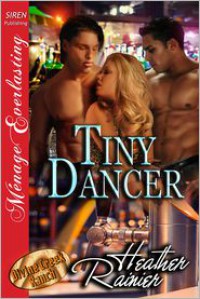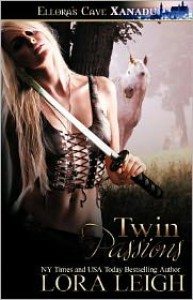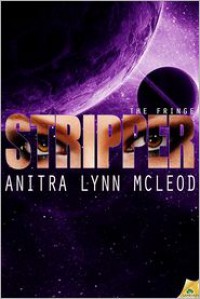Second Bookses
It's like second breakfast. Only with books.
 I came to Josh Kilmer-Purcell's memoir I Am Not Myself These Days backwards, first reading his later memoir The Bucolic Plague : How Two Manhattanites Became Gentleman Farmers: An Unconventional Memoir, then seeing him and his partner on the reality show The Amazing Race and finally reading his first memoir, where he details his former life as a NYC drag queen living with a high-end male escort.Yes, you read that right. High-end male escort. And a drag queen.I could sum up the book with stories of Kilmer-Purcell's outrageous outfits involving live goldfish as his alter-ego Aquadisiac, or the book's startling opening: a prologue involving his boyfriend holding a knife to him. None of them tell the real story, however. Reading the memoirs backward gives the reader a different view of the author. You already know where he ends up. While the shock of the prologue is somewhat diluted with that knowledge, you're left even more interested. After all, how did he get from the vodka-soaked drag queen nearly killed by his drug-fueled boyfriend to where he is now?Kilmer-Purcell has a voice most writers would kill for; you feel when you are reading as if you are sitting down with your best friend and he's telling you his life story without dragging anything out. The book is a quick read, but not fluffy, and he manages to encapsulate the early '90s club scene in a way that should be familiar to those who lived it as well as understandable for those who find it bizarre and somewhat frightening. The writing is so vivid that at times I felt like I had stepped back in time and was immersed in very similar scenes to those he described (although I can honestly say I have never encountered a drunk Andy Dick in a men's room).
I came to Josh Kilmer-Purcell's memoir I Am Not Myself These Days backwards, first reading his later memoir The Bucolic Plague : How Two Manhattanites Became Gentleman Farmers: An Unconventional Memoir, then seeing him and his partner on the reality show The Amazing Race and finally reading his first memoir, where he details his former life as a NYC drag queen living with a high-end male escort.Yes, you read that right. High-end male escort. And a drag queen.I could sum up the book with stories of Kilmer-Purcell's outrageous outfits involving live goldfish as his alter-ego Aquadisiac, or the book's startling opening: a prologue involving his boyfriend holding a knife to him. None of them tell the real story, however. Reading the memoirs backward gives the reader a different view of the author. You already know where he ends up. While the shock of the prologue is somewhat diluted with that knowledge, you're left even more interested. After all, how did he get from the vodka-soaked drag queen nearly killed by his drug-fueled boyfriend to where he is now?Kilmer-Purcell has a voice most writers would kill for; you feel when you are reading as if you are sitting down with your best friend and he's telling you his life story without dragging anything out. The book is a quick read, but not fluffy, and he manages to encapsulate the early '90s club scene in a way that should be familiar to those who lived it as well as understandable for those who find it bizarre and somewhat frightening. The writing is so vivid that at times I felt like I had stepped back in time and was immersed in very similar scenes to those he described (although I can honestly say I have never encountered a drunk Andy Dick in a men's room).
 Reading Joanne Harris' Chocolat was doing the unthinkable: I was reading the book after I saw the movie, which is one of my all-time favorites, and I was reading a book David Abrams panned, and I have almost always agreed with his take on books. Like most reviewers, I found reading the book to be an entirely different experience than watching the movie. The book feels less like magical realism and more like a magically modified version of The Scarlet Letter. Take an overly conservative priest who believes the more he sacrifices the closer to God he will be and add in an atheist/agnostic candymaker who moves to his small French village and begins to sway the residents with her magic-imbued sweets. The narrative switches between candymaker Vianne's POV and that of he priest, Father Reynaud, in a seesaw between good and evil that at times seems overly simplified. Even the most oblivious reader will probably see where this story is heading long before the ending.Where Chocolat shines, however, is in the descriptions. While the plot may seem too simple, the lush imagery of the village and its eccentric residents as well as the mouth-watering treats Vianne makes in her shop leave the reader feeling as if the story is real and happening all around. Not since Laura Esquivel's Like Water for Chocolate have I been so hungry while reading a book.If you are hoping for a repeat of the movie, or a book that will keep you guessing, this will undoubtedly disappoint. However, if you are willing to look past the plot for vivid writing that makes you feel part of the action, Chocolat is well worth the time.
Reading Joanne Harris' Chocolat was doing the unthinkable: I was reading the book after I saw the movie, which is one of my all-time favorites, and I was reading a book David Abrams panned, and I have almost always agreed with his take on books. Like most reviewers, I found reading the book to be an entirely different experience than watching the movie. The book feels less like magical realism and more like a magically modified version of The Scarlet Letter. Take an overly conservative priest who believes the more he sacrifices the closer to God he will be and add in an atheist/agnostic candymaker who moves to his small French village and begins to sway the residents with her magic-imbued sweets. The narrative switches between candymaker Vianne's POV and that of he priest, Father Reynaud, in a seesaw between good and evil that at times seems overly simplified. Even the most oblivious reader will probably see where this story is heading long before the ending.Where Chocolat shines, however, is in the descriptions. While the plot may seem too simple, the lush imagery of the village and its eccentric residents as well as the mouth-watering treats Vianne makes in her shop leave the reader feeling as if the story is real and happening all around. Not since Laura Esquivel's Like Water for Chocolate have I been so hungry while reading a book.If you are hoping for a repeat of the movie, or a book that will keep you guessing, this will undoubtedly disappoint. However, if you are willing to look past the plot for vivid writing that makes you feel part of the action, Chocolat is well worth the time.
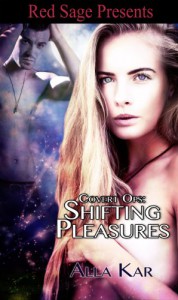 Reviewed for RT Book Reviews June 2013 issue: http://www.rtbookreviews.com/book-review/covert-ops-shifting-pleasures
Reviewed for RT Book Reviews June 2013 issue: http://www.rtbookreviews.com/book-review/covert-ops-shifting-pleasures
Reilly's Wildcard (Blackwater, #4)
 Reviewed for RT Book Reviews June 2013 issue: http://www.rtbookreviews.com/book-review/reillys-wildcard
Reviewed for RT Book Reviews June 2013 issue: http://www.rtbookreviews.com/book-review/reillys-wildcard
 Reviewed for RT Book Reviews June 2013 issue: http://www.rtbookreviews.com/book-review/sphinx-resurrectedLong story short: BLOWN AWAY by obvious borrowing from Stargate universe. Forget P2P fan fiction. This was wholesale ganking, from the Wraith to the Egyptian aliens to the gates. Still SMH.
Reviewed for RT Book Reviews June 2013 issue: http://www.rtbookreviews.com/book-review/sphinx-resurrectedLong story short: BLOWN AWAY by obvious borrowing from Stargate universe. Forget P2P fan fiction. This was wholesale ganking, from the Wraith to the Egyptian aliens to the gates. Still SMH.
 Reviewed for RT Book Reviews May 2013 issue: http://www.rtbookreviews.com/book-review/running-wild-3
Reviewed for RT Book Reviews May 2013 issue: http://www.rtbookreviews.com/book-review/running-wild-3
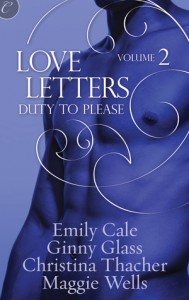 Reviewed for RT Book Reviews: http://www.rtbookreviews.com/book-review/love-letters-volume-2-duty-please
Reviewed for RT Book Reviews: http://www.rtbookreviews.com/book-review/love-letters-volume-2-duty-please
It's a Sweet Life [Coffeeshop Coven Prequel] (Siren Publishing Menage Everlasting)
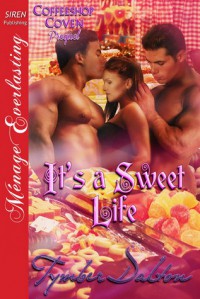 Reviewed for RT Book Reviews May 2013 issue: http://www.rtbookreviews.com/book-review/its-sweet-life
Reviewed for RT Book Reviews May 2013 issue: http://www.rtbookreviews.com/book-review/its-sweet-life
![Imprisoned Match [Menage.com 4] (Siren Publishing Menage Everlasting) - Peyton Elizabeth](http://booklikes.com/photo/max/200/300/upload/books/d/a/da4bbc9ca46f011ce92c398acb0b647b.jpg) Reviewed for RT Book Reviews May 2013 issue: http://www.rtbookreviews.com/book-review/imprisoned-match
Reviewed for RT Book Reviews May 2013 issue: http://www.rtbookreviews.com/book-review/imprisoned-match
 Reviewed for RT Book Reviews April 2013 issue: http://www.rtbookreviews.com/book-review/finding-chrissten
Reviewed for RT Book Reviews April 2013 issue: http://www.rtbookreviews.com/book-review/finding-chrissten
The Sinful 7 of Delite, Texas 2: Double Inferno (Siren Publishing Menage Everlasting)
 Reviewed for the RT Book Reviews April 2013 issue: http://www.rtbookreviews.com/book-review/double-inferno
Reviewed for the RT Book Reviews April 2013 issue: http://www.rtbookreviews.com/book-review/double-inferno
Currently reading
Jonathan Strange & Mr Norrell
Elisabeth Sladen: The Autobiography
Diary of a Submissive: A Modern True Tale of Sexual Awakening
Bellman & Black
Deep into the Heart of a Rose

